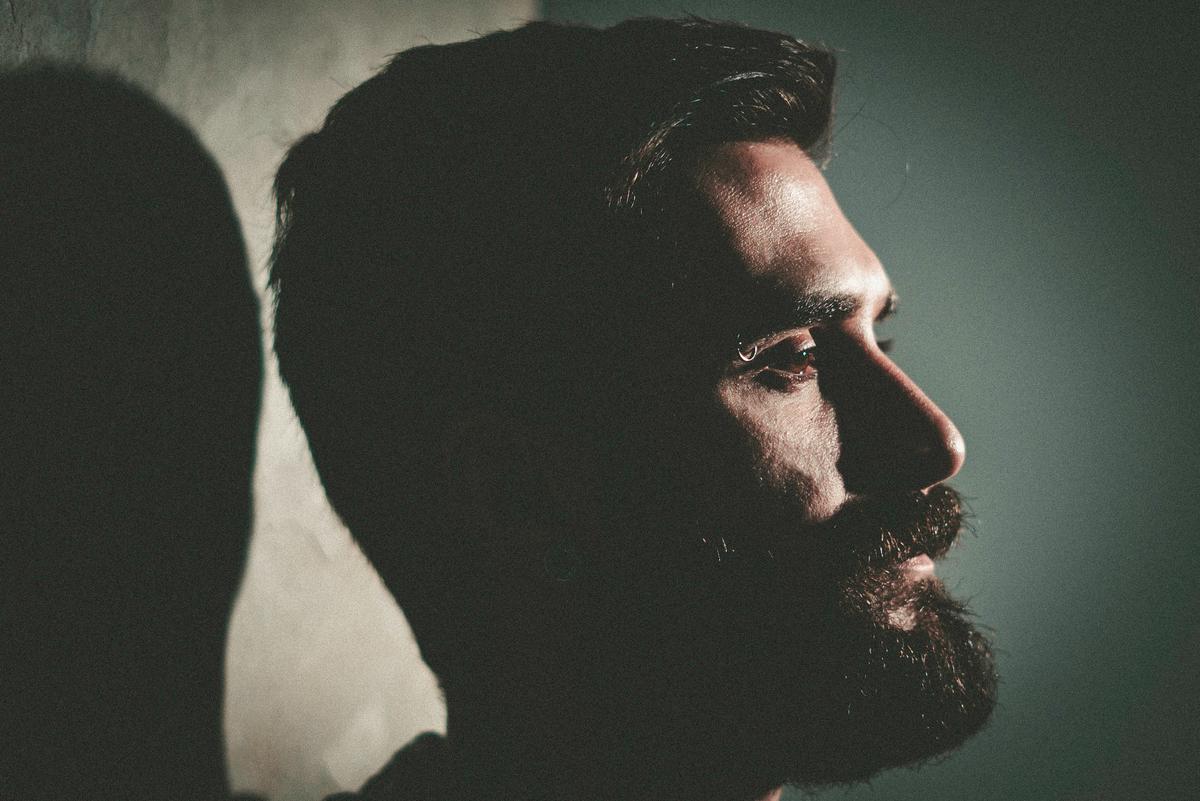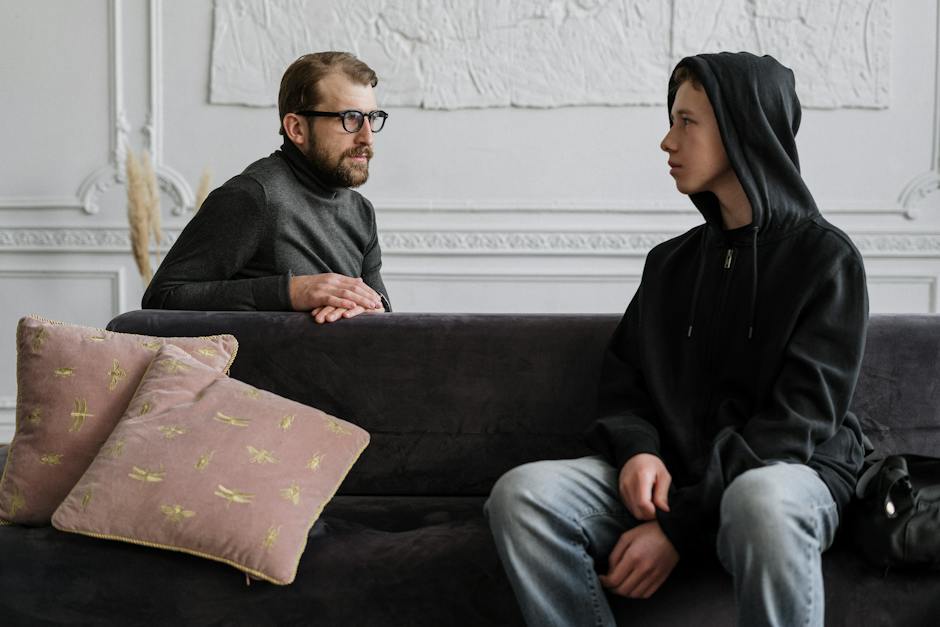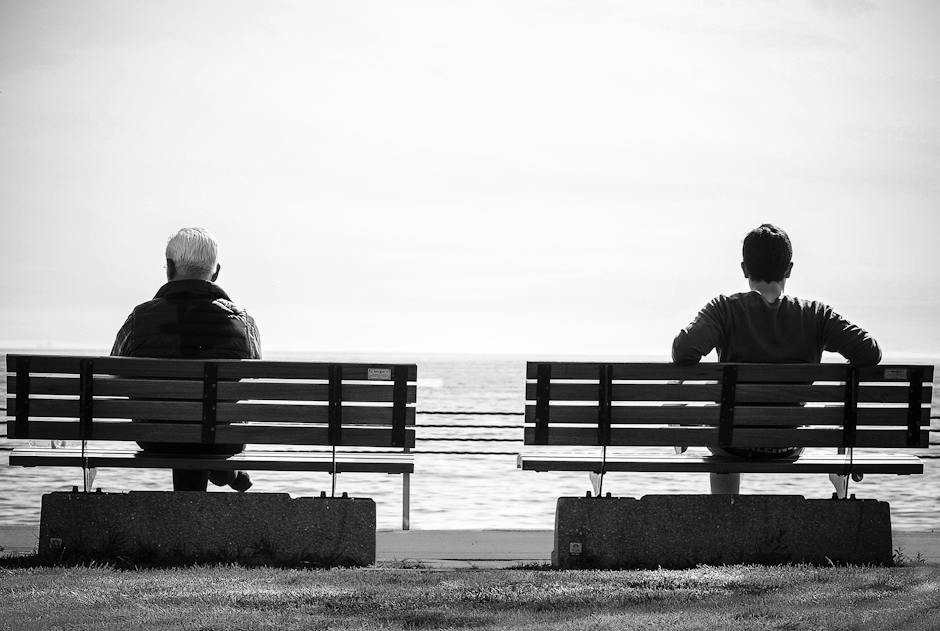As society progresses, so too must our understanding and approach to mental health, a vital aspect of our overall well-being that knows no gender boundaries. Yet, men’s mental health continues to languish in the shadows, shackled by pervasive societal stigmas and antiquated notions of masculinity. This discussion seeks to illuminate the oft-ignored struggles that men face, challenging the traditional silence on this topic. We venture into the heart of the issue, unpacking the layers of cultural reticence, debunking myths, and laying bare the raw realities that many men contend with in isolation. It’s time to confront the stereotype that stoicism is a sign of strength and reveal the truth: vulnerability and seeking help are the true measures of courage.
The Stigma Surrounding Men’s Mental Health
Breaking the Silence: Unpacking the Stigma Around Men’s Mental Health
Hey there, style savvy trendsetters and thoughtful living enthusiasts! Today we’re diving into a conversation that’s been on the fringes for far too long—men’s mental health. We know you’re all about curating the perfect outfit or Instagram feed, but let’s talk about something even more important: the mind.
For generations, society has painted a very specific picture of what it means to be masculine: tough, unemotional, and self-reliant. Guys have been expected to keep a stiff upper lip and “man up” in the face of adversity. But here’s the hot take: emotions don’t discriminate. Everyone, no matter who they are, experiences mental health challenges at some point.
So why the stigma? Well, friends, it’s like wearing last season’s trends—outdated and making everything more uncomfortable than a pair of too-tight jeans. From childhood, many men are taught that talking about feelings isn’t manly. They learn to bottle up emotions, treating vulnerability like the ultimate fashion faux pas.
Here’s the deal: mental health issues don’t care about your gender. They can hit anyone, and the “tough it out” mentality can make things way worse. We’re talking about a world where stress is like a bad accessory—totally obvious and definitely not complementing anyone’s look.
What’s worse is that this stigma often keeps men from seeking help. It’s like having a designer bag (you know, your mind) and never showing it off (talking about your feelings) or getting it polished (therapy). Guys might worry they’ll be judged or seen as weak. They’re stuck in a cycle of silence that could lead to more serious issues.
But we’ve got good news! Just like the fashion world evolves, so can culture. More men are stepping forward, sharing their stories, and showing it’s completely normal to have mental health ups and downs. It’s as if mental health is finally getting the spotlight on the runway, and we’re here for it.
Celebs, influencers, and everyday folks alike have started to challenge these stereotypes. It’s becoming cool to be authentic and open, just like that effortless chic look we all strive for. Men are finding strength in vulnerability, and it’s a trend that we hope sticks around longer than the dad shoe craze.
Let’s wrap it up with real talk: the stigma around men’s mental health belongs in the same bin as bell-bottoms—gone and not missed. If you or a guy you know is struggling, let’s start conversations like we pick out our outfits—in style, without judgment, and with the confidence to express what’s truly going on inside. ‘Cause, seriously, a healthy mind is the best accessory anyone can rock.

Photo by viniciusamano on Unsplash
Recognizing Symptoms and Seeking Help
We’ve already dished out the real scoop on how those tough-as-nails standards can throw shade on the mental game of our guys. But let’s keep it 100 and talk about the low-key signs they might be juggling more than they let on. Recognizing these signs is like catching the latest trend before it goes viral, only it’s way more important because we’re talking about health, not just hype.
First, if a man’s mood is flipping faster than a fashion trend, take note. Mood swings aren’t just drama for your mama—they can be a red flag that something’s up with their mental health. When a guy who’s usually chill starts snapping at small stuff or switching from being on cloud nine to down in the dumps, it’s time to tune in.
Another signal that’s sneaky but speaks volumes is when a bro starts ghosting on social responsibilities. If he’s MIA at work, ditching the squad, or skipping out on fam get-togethers, it could mean he’s dealing with some heavy stuff.
And let’s spill the tea on something called ‘anxiety’. When a dude is on edge more than those skinny jeans they’re trying to make work, it’s a warning. High levels of worry, stress that won’t quit, and even physical signs like a racing heart or sweaty palms when nothing’s even happening? Yeah, not the latest fitness craze—just signs to look out for.
Now, onto the biggie—changes in self-care. If a guy who was all about that gym life starts lounging more than he’s lifting, or if someone kicks their diet to the curb in favor of late-night fast food binges, it’s not just a cheat day, it’s potentially a cry for help.
Here’s where it gets real: asking for help is the flex of the century. If you see a bro struggling, be the hype man for their health. Encourage them to chat it out with a pro, like a therapist or doctor. Drop the deets on resources like mental health hotlines and apps that give advice and support faster than you can say ‘avocado toast’. And always, always stick by them like you would with your favorite pair of kicks.
At the end of the day, it’s not just about spilling the tea on looks and lewks. It’s about sharing the stuff that really matters. Normalize the convo around men’s mental health. Elevate understanding. And let’s make that first impression of reaching out for help as on-point as a perfectly curated feed. So go ahead and double-tap on that support button. It’s the most influential move you can make.

The Role of Social Media and Public Figures
Stepping into the world of social media, where the highlight reels of life are in constant play, it’s as if we’ve crafted a digital runway, with everyone striving for the picture-perfect image. Yet, amid the glitz and glam, there’s a side rarely discussed: the toll on men’s mental health. So let’s dive into the pixels beyond the screen and unwrap how influencer culture twists the reality for many guys out there.
Picture this: as scroll meets screen, men are bombarded with fitness gurus and jet-setters, painting a portrait of success tied to abs and affluence. But what’s often unseen are the filters of doubt and the cropping out of life’s messiness. The comparison game isn’t just a competition; it’s a silent war where self-esteem is the battlefield, and every ‘like’ can feel like a win or loss.
Let’s talk about these curated personas, with feeds flooded with style tips, travel snaps, and lifehacks. While it’s inspirational, it can also skew expectations, building an idea that if you’re not living large, you’re not living at all. This can crank up the stress levels, sparking anxiety and leaving self-worth hanging by the thread of the latest trends.
Moreover, in a space where viral moments are the currency, the pressure to perform and stay relevant can lead to a relentless chase. Behind those perfectly framed photos may lie burnout, overwhelming pressure, and a sense of never being enough. Not quite the dream lifestyle it’s made out to be, right?
Navigating this mirage, it’s easy to overlook how essential it is to unplug and unwind. Encouraging moments of digital detox is pivotal for mental clarity and emotional well-being. Men need to remember that it’s okay to hit pause on the constant content creation and consumption.
And what about the direct messages and comments? They’re a double-edged sword. On one side, they offer immediate encouragement or feedback, but they can also harbor negativity or criticism that eats away at self-esteem. Balancing this digital dialogue is crucial for maintaining a healthy mind space.
The culture of comparison also has a brother: perfectionism. Striving for that flawless feed can create a gnawing perfectionist cycle, making guys feel like they’re always a step behind the latest trendsetter. Here, we need to champion the notion that it’s okay not to have everything figured out or to show that sometimes life is a little rough around the edges. Authenticity brings connection, and isn’t connection what we truly seek?
Last of all, for those facing dark days, it’s vital to use these platforms for support, not just for show. With the swipe of a thumb, one can find communities, forums, and groups promoting mental health progress and providing a space for real talk about real struggles.
Remember, at the end of the day, social media and influencer culture are tools—they have the power to craft both dreams and doubts. It’s all about moderation, realness, and making those tools work for men’s mental health, not against it. Helping each other navigate this digital domain with empathy, understanding, and genuine care will make all the difference. So let’s keep the conversation going, the support flowing, and show the world that men’s mental health is not just a trend but a priority worth tagging.

Mental Health Resources and Support Systems
Creating a Supportive Ecosystem for Men’s Mental Health
Gone are the days when mental health was a behind-the-scenes conversation. Today, fostering awareness and providing resources for mental wellbeing is central to a healthier society, especially for men who have traditionally suffered in silence. To further empower men, numerous resources and tools are currently at their disposal.
At the forefront are mental health professionals like psychologists, psychiatrists, and counselors, who bring expertise and empathy to the table. Therapy, with its manifold approaches, including Cognitive Behavioral Therapy (CBT) or talk therapy, serves as a constructive space for men to address their concerns. Seeking professional help is a sign of strength and a step toward resilience.
Support doesn’t stop with therapy; support groups are becoming increasingly popular. These groups provide a community of individuals sharing similar experiences, adding a layer of social support that can be crucial during tough times. Confidentiality and understanding within these groups can be incredibly reassuring, ensuring that men don’t have to face their battles alone.
Moreover, technology has evolved to offer e-therapy and mental health apps, making support accessible right from smartphones. Apps that focus on mindfulness, meditation, and stress management can help men incorporate wellness into their daily routines. Additionally, teletherapy sessions remove barriers such as location and scheduling, making it easier for men to maintain consistency in their mental health journey.
Employers are also starting to acknowledge the significance of mental wellbeing, with many adopting Employee Assistance Programs (EAPs). EAPs can provide confidential counseling, work-life solutions, and resources tailored to individual needs—a welcome corporate approach to holistic employee health.
Exercise is another supportive resource, as physical activity has been linked to improved mood and reduced anxiety. Whether it’s hitting the gym, joining a sports team, or simply taking a walk, the endorphin boost can be a game-changer for mental balance.
Lastly, society as a whole plays a critical role. By promoting an inclusive environment, understanding diverse mental health experiences, and amplifying the importance of reaching out, each person contributes to a culture that uplifts and supports rather than judges or belittles.
It’s imperative to show compassion and provide a safety net for men grappling with challenges. Encouraging a narrative of wellbeing, reaching out to those in need, and nurturing a climate of collective concern can make all the difference.
Remember, it’s not just about creating resources but actively ensuring their utilization. Demystifying therapy, applauding those who take steps toward recovery, providing platforms for open conversations, and inculcating sensitivity within communities are ways society can build a stronger, more supportive structure for men’s mental health.
While there’s much room for progress, acknowledging the journey so far is pivotal. The resources are out there; let’s ensure they are widely known, easily accessible, and wholeheartedly embraced. Let’s continue to strive towards a world where every individual, regardless of gender, finds the strength and support to navigate the spectrum of mental health.

Promoting Healthy Lifestyle Changes
Ah, the hustle of day-to-day life — a whirlwind of work, workouts, and weekend socials. But there’s more beneath the surface, especially when talking about crafting an #APlusLife. Let’s dive into something that quite frankly, isn’t talked about enough: men’s mental health and the lifestyle adjustments that can help turn the tide.
Got that gym membership? Fantastic! Breaking a sweat isn’t just about looking good, it’s a gateway to feeling good, too. Exercise releases those feel-good hormones, keeping the stress and blues at bay. Whether it’s lifting weights, cycling, or joining that trendy new yoga class, staying active is key to balancing mind and body — it’s like a natural antidepressant.
Up next, let’s talk about food — the fuel for our souls. Those leafy greens and lean proteins aren’t just for shaping up the physique, they’re the building blocks for a healthy mind. A diet rich in omega-3s, vitamins, and minerals supports brain function and can influence mood. So, swap that fast food for something that nourishes from the inside out. A meal made with care can be just as Instagram-worthy as the latest fashion trend, and way better for mental health.
Now, onto sleep — the unsung hero of wellbeing. It’s tempting to binge that new series until the early hours, but hitting the hay at a decent time is crucial. Quality sleep is like hitting the reset button, reducing anxiety and improving concentration. So, aim for those golden 7-9 hours; your mind (and your followers) will thank you.
Work-life balance? It’s not just a buzzword. Overworking can lead to burnout, and no one wants that. Setting boundaries is stylish, believe it. It’s about knowing when to switch off that laptop and enjoy life’s pleasures. Maybe start that side passion project or take a mini-vacation. Remember, it’s all about the #GoodVibes.
Of course, we can’t forget the zen zone — meditation and mindfulness. These practices are like the latest trend everyone needs to try. They quiet the noise and introduce inner peace, making space for clarity and focus — it’s like decluttering, but for the brain.
And let’s not leave out the art of saying “no.” It’s empowering and necessary. Declining invites or tasks that don’t spark joy isn’t rude, it’s self-care. This liberating practice helps maintain energy levels and keeps the mind clear of unnecessary stress. Self-care isn’t selfish, it’s essential.
Conversations about feelings are becoming trendy, as they should be. Regular check-ins with oneself and real talks with pals create a support network that’s stronger than any Wi-Fi connection. It’s vital to have those heart-to-hearts, where the facades drop and the real talk flows.
Last but not least, embracing the passions and hobbies that light that fire inside also plays a huge role. Whether it’s photography, painting, brewing craft beer, or trail hiking, these activities aren’t just for show — they’re outlets for expression and can be incredibly therapeutic.
So wave goodbye to the outdated “grin and bear it” mantra, because these adjustments are all about living fully and freely. The modern man understands that mental wellness goes hand-in-hand with the curated aesthetic of daily life. It’s about showing up, not just for the ‘gram, but for oneself. And that, my friends, is the ultimate lifestyle goal.

Through our collective effort, we can foster a more empathetic and informed environment where men’s mental health issues are no longer a silent burden but rather, a shared human experience openly addressed and supported. We must carry forward the invaluable lessons and insights, ensuring that they translate into sustained advocacy and action beyond our reflections here. Men from all walks of life deserve to navigate their mental health journeys with dignity, unfettered by judgment and empowered by a community that stands with them in solidarity. We hold the power to redefine strength, not as the absence of struggle, but as the presence of perseverance and the willingness to seek help in the face of adversity.

One thought on “Shining Light on Men’s Mental Health”